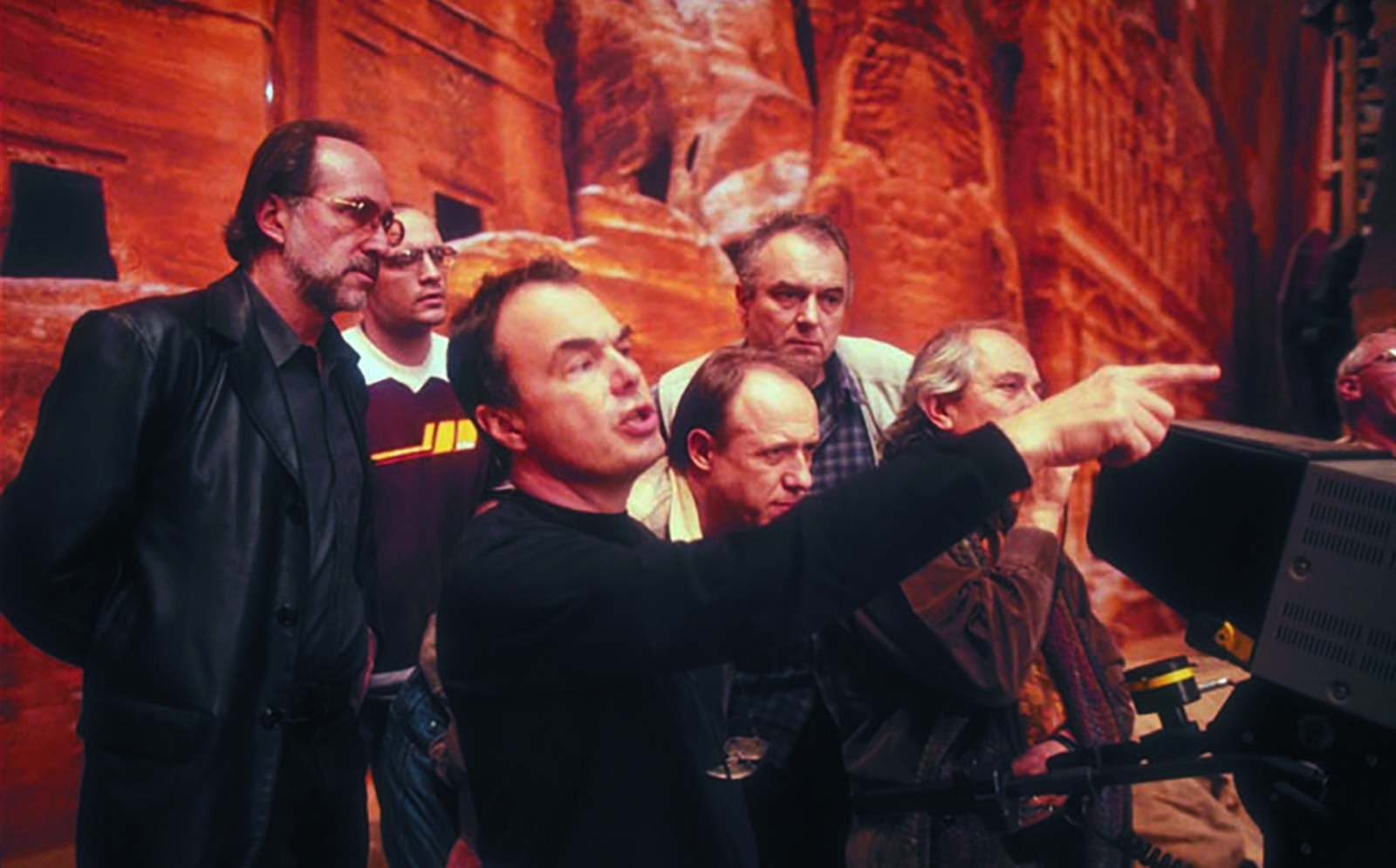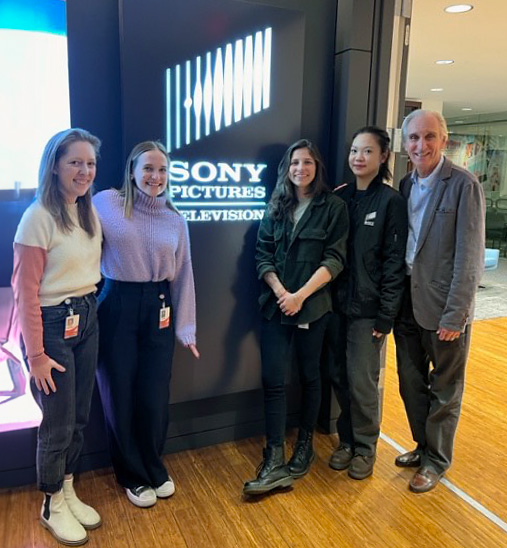
Master of Entertainment Industry Management
Taught from the Inside Out
John Harrison and Ed Lammi Collaborate on Course Work for TV and Film Production
written by
Dan Green
Master of Entertainment Industry Management (MEIM) students are getting their fair share of hands-on training in their second year of the program in Los Angeles. One example is the way the class, Production Management, is being taught. The class covers a day in the life of the writer/director and the production side of how a film/TV studio works.
College of Fine Arts School of Drama MFA graduate, John Harrison (who is an accomplished Emmy-nominated director/writer), was approached years ago to teach television production to the second-year MEIM students in Los Angeles. It was Harrison’s suggestion to team-teach the course with one of his best friends, Ed Lammi (also an Emmy winner), who happened to be the executive vice president of Sony Pictures Television. The two met on the stage floor of famed WQED in Pittsburgh and became fast friends.
“The mandate was to make the class more applicable and a thorough examination into the real-world of physical production ... not just theory or telling stories about the way things used to be,” said MEIM Program Director, Dan Green. Green convinced Lammi and Harrison that they could be great teachers.
"The years of experience that these two bring to the classroom is tremendous and touches on just about every facet of the industry."
Dan Green
Program Director, Master of Entertainment Industry Management
Both friends started out in Pittsburgh, and both cut their teeth in the film industry working for and with famed horror director, George Romero. Harrison began his career directing rock videos and collaborating with Romero on several films, most notably “Creepshow” and “Day of the Dead,” for which Harrison also composed the scores. Lammi, a Penn State grad, worked in a variety of production capacities such as production manager, associate producer and producer and also worked on “Day of the Dead.”

Their background was perfect for a class that illuminates what it takes to produce film and television. Harrison has written and directed multiple TV episodes for U.S. Networks (HBO, NBC, TNT, Netflix among them) and has written and directed world-premiere movies for the USA Network and Starz/Encore. His 6-hour miniseries adaptation of Frank Herbert's monumental bestseller, “Dune,” which he directed, was an Emmy-winning success for the SYFY Channel and ProSieben. His adaptation of Herbert’s “Children of Dune,” which he also co-produced, was another Emmy winner.
Since the late 1980s, Lammi has supervised production of live-action and animated series, including Sony primetime comedies, dramas, reality and non-scripted programming, telefilms, game shows and talk shows. The two certainly know what they are talking about in the classroom, Green said, and both now have other reasons to celebrate.

Harrison’s Supernatural Thriller
Harrison had his supernatural thriller, “Passing Through Veils,” published this fall. The novel centers around a brilliant retired high-powered attorney who has just been released from an institution after a nervous breakdown. She moves into a rundown Georgetown townhouse near Washington, D.C. In restoring the house, she begins to find mementos of the woman haunting her house, a victim of a cold case murder from 30 years ago.
As with many of his stories, Harrison had this one percolating in his mind for a while. As he noted, “If the story continues to stick [with him], I should do something about it.” This is his second published novel. The first was titled, “Destiny Gardens,” a story about disenfranchised kids in Pittsburgh who form their own family in an abandoned warehouse. He has a few other books permeating his thought — one of which is a dangerous, creepy urban tale that will be published next year titled, “Residue.”
Beyond the novels, Harrison has been keeping busy. He started a new podcast with Fangoria centering around an anthology of creepy tales called, “John Harrison’s Sinister Stories,” set to be dropped in 2024.

Lammi Set to Retire from Sony After 36 Years
In spring 2024, Sony will lose their confident captain of production, as Lammi has decided to retire from the studio after 36 years. Lammi has certainly seen the changes in the television industry. He started under Columbia Pictures Television, which was then purchased by Sony and has since moved away from the licensing model to a more complex streaming world.
Lammi has always been a well-respected leader in the television industry working on various shows such as, “The Boys,” “The Blacklist,” “S.W.A.T.,” “Outlander,” “Better Call Saul,” “The Goldbergs” and “Cobra Kai.” He was often sought out for problem-solving in the changing business of television. One of the biggest challenges was related to how COVID completely shut down filming throughout the television industry in 2020. Lammi successfully helped Sony be among the first to be back up and running with COVID protocols during the pandemic. This was a huge acknowledgment of Lammi and his department’s ability to lead with the support of upper-level management.
As he takes a step back from the industry, he will continue teaching the Production Management course with Harrison. After class, the two friends and fellow musicians usually meet at Lammi’s house to create music with a few other friends. Lammi feels that as much as he is the teacher, he is also learning a lot from the students through the high level of interactivity and diverse interests in the classroom.
“Our philosophy is to give students the vocabulary with which to converse … so that when they do talk [in interviews or on the job], they know what they’re talking about.”
John Harrison
Despite the ever-changing industry, and recently settled strikes, Harrison believes that new opportunities arise just like anything else.
“Television didn’t kill film, and streaming [won’t] kill television,” he said. “There’s all kinds of new media that storytellers can take advantage of.”
Lammi agrees.
“People don't tune in because of the technology with which it was recorded. They tune in for the stories and the actors … I think that will always be the case.”
Ed Lammi
